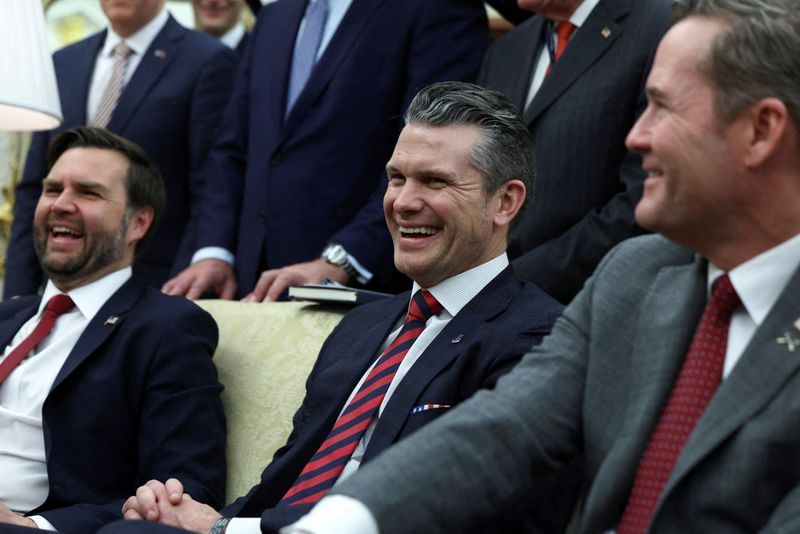Leaders of US intelligence agencies have rejected claims of security breach after the Trump team inadvertently leaked to a journalist details of highly sensitive plan to strike Yemen, with Democrats saying it demonstrates sloppy conduct that would often result in firings.
Testifying on Tuesday before the Senate Intelligence Committee about global security threats, CIA Director John Ratcliffe told lawmakers, "My communications to be clear in the Signal message group were entirely permissible and lawful and did not include classified information."
Democrats have said the leaked military plans in a Signal group message that included Jeffrey Goldberg, editor-in-chief of The Atlantic, show a sloppy disregard for security, but Ratcliffe said no rules were violated.
During heated questions from Senator Mark Warner, D-Virginia, Director of National Intelligence Tulsi Gabbard said there’s a difference between "inadvertent" releases of information and intentional leaks.
"There was no classified material that was shared," Gabbard said.
Warner, however, said that if a lower ranking officer had texted similar secret plans, "They would be fired."
The Senate hearing also featured FBI Director Kash Patel.
Warner opened the hearing by expressing disbelief that no intelligence officials on Signal checked the participant list, calling it "mind-boggling".
"Are these government devices? Were they personal devices? Have the devices been collected to make sure there's no malware?" Warner said in his opening remarks. "There's plenty of declassified information that shows that our adversaries, China and Russia, are trying to break into encryption systems like Signal."

'They ought to just be honest and own up to it'
Meanwhile, Representative Don Bacon said on Tuesday he would defer to the White House on whether Defense Secretary Pete Hegseth or National Security Adviser Michael Waltz should face repercussions over the leak.
"But I think we should be critical," he said.
"The fact that classified information was put on an unclassified system, I think the secretary of defense needs to answer for that," Bacon added.
He dismissed the need for an Armed Service investigation, simply because the facts were apparent.
Bacon also called the White House’s saying that no war plans were shared "baloney."
"They ought to just be honest and own up to it," Bacon said.
Bacon served nearly thirty years on active duty in the US Air Force, specialising in electronic warfare and intelligence.

Trump says Waltz 'learned a lesson'
Goldberg’s account of being added to a Signal group chat of US national security officials coordinating plans for air strikes has raised questions about how highly sensitive information is supposed to be handled.
The National Security Council has since said the text chain "appears to be authentic" and that it is looking into how a journalist’s number was added to the chain.
Goldberg wrote in the The Atlantic that the world learned at 2 pm (local time) on March 15 that the US was striking Yemen, but he knew two hours prior that an attack was imminent.
"The reason I knew this is that Pete Hegseth, the secretary of defense, had texted me the war plan at 11:44 am. The plan included precise information about weapons packages, targets and timing."
He said US national-security leaders added him to a group chat about the military strikes, adding it began when a user identified as Michael Waltz launched a connection request on March 11 on Signal.
On Tuesday, President Trump and the White House shrugged off security concerns from the leaks.
Trump, who took office in January, told NBC News in a phone call that it was "the only glitch in two months, and it turned out not to be a serious one," adding his national security advisor Michael Waltz had "learned a lesson."
The White House press secretary said on Tuesday that White House was looking into how Goldberg's number was added to the thread.
In a post on X.com, she criticised Goldberg as "well-known for his sensationalist spin" and praised "the strong and decisive leadership" of Trump.















